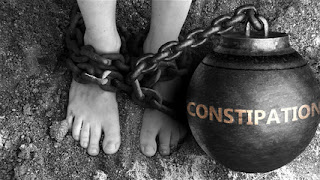Bad Breath Effects 50 Percent of Us
We’ve all had it, we are all likely to have it again, but some individuals suffer from it on a continual basis. Bad breath, otherwise know as halitosis, is estimated to affect up to 50 percent of the population in varying degrees.
Bad breath can be caused by a variety conditions. Poor oral hygiene, oral abscesses and gingivitis can harbor odor-inducing bacteria that may cause bad breath. Flossing daily, brushing at least twice daily and eating raw fruits and vegetables can improve this situation.
Unfortunately, most people suffering from bad breath have issues that lie far deeper than the oral cavity. A study in the Journal of Medical Microbiology suggests that H. pylori can be an underlying cause of bad breath as well the more common association with stomach ulcers. Another frequent correlation is chronic constipation. Chronically constipated people typically suffer from Candida and or an abundance of unhealthy bacteria in relation to friendly, health-promoting bacteria. This is often the bad breath that no gum or mouthwash can conquer. Morning breath is a given and unfortunately, most will ignore the gentle hints given by loved ones or co-workers. If you find yourself constipated from time to time, please visit Constipation Clinic for advice and a whole host of remedies.
Other causes may be related to upper respiratory infections. Bronchitis, sinusitis, and even a cold break down tissue, starting a flow of cells and mucus that feed bacteria that create foul odors. Medications such as antidepressants and diuretics can dry the mouth, predisposing the individual to bad breath.
Those who have tried the carbohydrate restricting Atkins’s diet know all too well the bad breath that is associated with a high protein intake and ketoacidosis. People who ingest large quantities of dairy or sugar are more prone to “yeasty” type odors. Those who skip breakfast set themselves up for bad breath potential. Uncontrolled diabetes, anemia, kidney disease, liver disease and excessive alcohol consumption are also contributing factors.
If you or a loved one suffers from chronic bad breath, there are some remedies that may be helpful.
Brush with baking soda or hydrogen peroxide-containing toothpaste. These two ingredients make it difficult for bacteria to grow.
Alleviate constipation through diet and supplementation. Cape Aloe is a very safe, gentle, and effective stool-softening agent.
Probiotic (healthy bacteria) supplements will help create an environment that minimizes foul-smelling bacteria.
Supplements such as Chlorofresh contain chlorophyll that helps to deodorize the body from the inside out.
Minimize refined carbohydrate and sugar consumption. Bad, odor-causing bacteria flourish in this environment.
Parsley, mint leaves, lemon, and avocado all have breath-improving benefits. Individuals, who eat greens such as spinach, kale, beet greens, and wheatgrass, or include green supplements in their daily diet, are not likely to suffer from halitosis.
All Natural mouthwashes (no fluoride) that contain essential oils such as peppermint, thyme, eucalyptus, and wintergreen are far more effective than commercial mouthwashes.
I’ll stick to my guns and say you are what you eat, digest, and hold on to. People who have two bowel movements per day rarely suffer from bad breath. By keeping your digestive system healthy and eating a diet that includes plenty of vegetables you will make bad breath a thing of the past. If not for yourself, consider doing it for those around you.
Bad breath can be caused by a variety conditions. Poor oral hygiene, oral abscesses and gingivitis can harbor odor-inducing bacteria that may cause bad breath. Flossing daily, brushing at least twice daily and eating raw fruits and vegetables can improve this situation.
Unfortunately, most people suffering from bad breath have issues that lie far deeper than the oral cavity. A study in the Journal of Medical Microbiology suggests that H. pylori can be an underlying cause of bad breath as well the more common association with stomach ulcers. Another frequent correlation is chronic constipation. Chronically constipated people typically suffer from Candida and or an abundance of unhealthy bacteria in relation to friendly, health-promoting bacteria. This is often the bad breath that no gum or mouthwash can conquer. Morning breath is a given and unfortunately, most will ignore the gentle hints given by loved ones or co-workers. If you find yourself constipated from time to time, please visit Constipation Clinic for advice and a whole host of remedies.
Other causes may be related to upper respiratory infections. Bronchitis, sinusitis, and even a cold break down tissue, starting a flow of cells and mucus that feed bacteria that create foul odors. Medications such as antidepressants and diuretics can dry the mouth, predisposing the individual to bad breath.
Those who have tried the carbohydrate restricting Atkins’s diet know all too well the bad breath that is associated with a high protein intake and ketoacidosis. People who ingest large quantities of dairy or sugar are more prone to “yeasty” type odors. Those who skip breakfast set themselves up for bad breath potential. Uncontrolled diabetes, anemia, kidney disease, liver disease and excessive alcohol consumption are also contributing factors.
If you or a loved one suffers from chronic bad breath, there are some remedies that may be helpful.
Brush with baking soda or hydrogen peroxide-containing toothpaste. These two ingredients make it difficult for bacteria to grow.
Alleviate constipation through diet and supplementation. Cape Aloe is a very safe, gentle, and effective stool-softening agent.
Probiotic (healthy bacteria) supplements will help create an environment that minimizes foul-smelling bacteria.
Supplements such as Chlorofresh contain chlorophyll that helps to deodorize the body from the inside out.
Minimize refined carbohydrate and sugar consumption. Bad, odor-causing bacteria flourish in this environment.
Parsley, mint leaves, lemon, and avocado all have breath-improving benefits. Individuals, who eat greens such as spinach, kale, beet greens, and wheatgrass, or include green supplements in their daily diet, are not likely to suffer from halitosis.
All Natural mouthwashes (no fluoride) that contain essential oils such as peppermint, thyme, eucalyptus, and wintergreen are far more effective than commercial mouthwashes.
I’ll stick to my guns and say you are what you eat, digest, and hold on to. People who have two bowel movements per day rarely suffer from bad breath. By keeping your digestive system healthy and eating a diet that includes plenty of vegetables you will make bad breath a thing of the past. If not for yourself, consider doing it for those around you.



Comments
Post a Comment